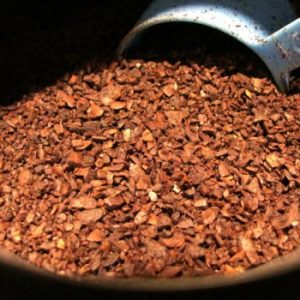New research shows that discarded biological materials like used whisky grains, seaweed and coffee grounds are able to soak up toxic radioactive waste. By using these readily accessible materials, billions of dollars should be saved in cleaning up hazardous materials.
When radioactive waste is dumped, workers often flood the area with water in order to cool it down and prevent a potentially destructive explosion. However, this leaves workers with millions of gallons of contaminated water that they must dispose of.
Workers must then either seal the site, waiting many generations for the material to naturally decay or use highly expensive artificial materials to clean the radioactive material.
However, this new method of cleaning up a nuclear dumpsite is considerably cheaper and faster. Scientists from the Environmental Research Institute of Scotland have started making use of various biological materials to make cleanup jobs easier and less costly.
The process is known as “biosorption” because non-living biological materials are able to soak up common radioactive chemicals. Indeed, everything from used coffee grounds to spent whisky grains have been used in the process.
After these materials absorb the radioactive chemicals, the materials can be gathered and safely stored at an off-site location. There is no need for costly artificial additives, and this saves both money and space.
Scientists say that more research still needs to be done in order to work out some issues, but the results so far have been extremely promising. Biosorption has already been used to clean contaminants such as mercury and arsenic from water.
According to scientists, more testing is needed using coffee grounds and whisky grains in order to determine just how viable they are when it comes to cleaning up the material. But from what they have seen so far, the outlook is promising for cleaning up waste.
So the next time you drink whisky or brew a cup of coffee, you might indirectly be helping the environment clean up hazardous materials.
Stay Connected